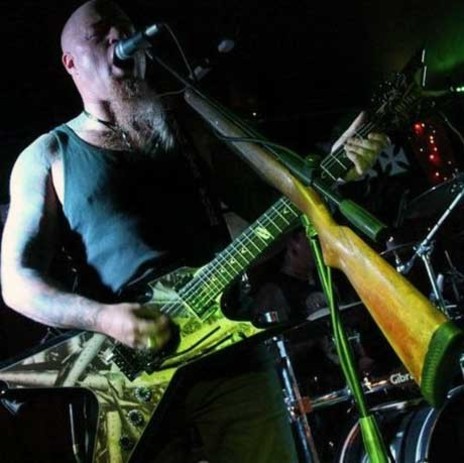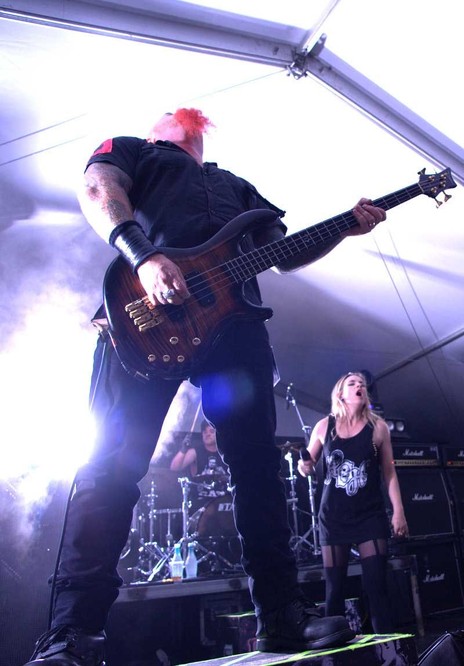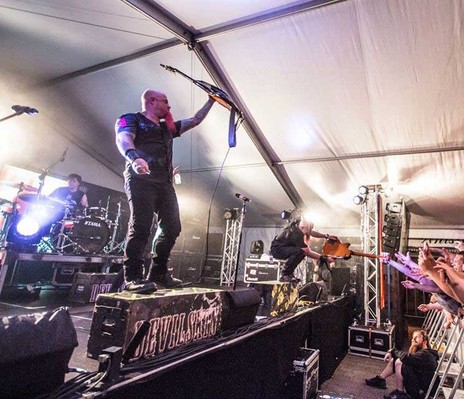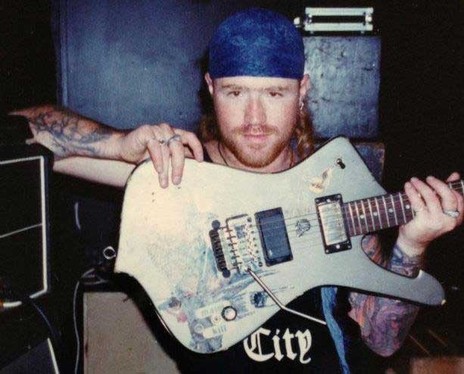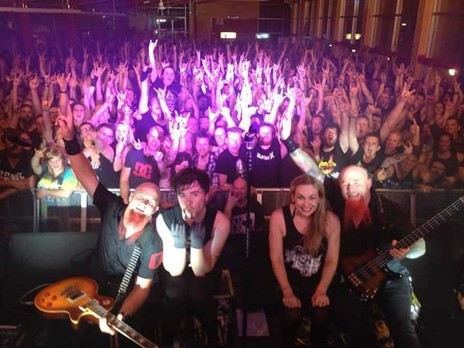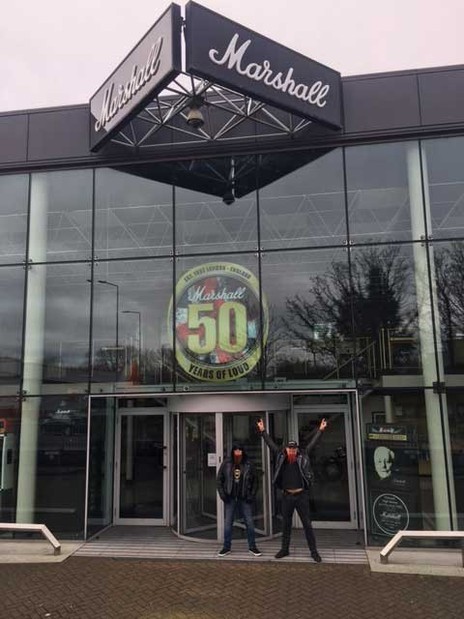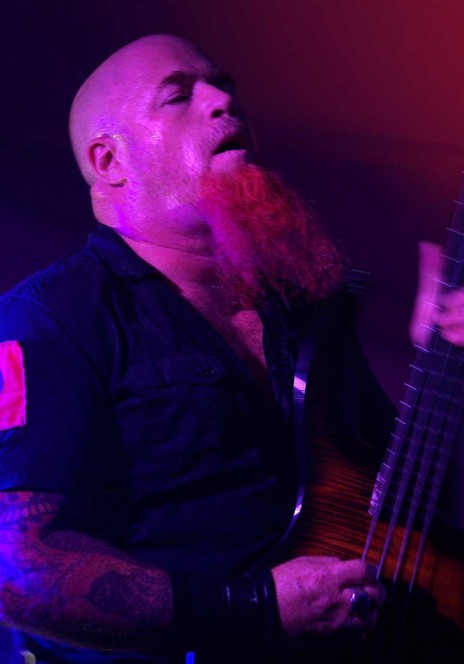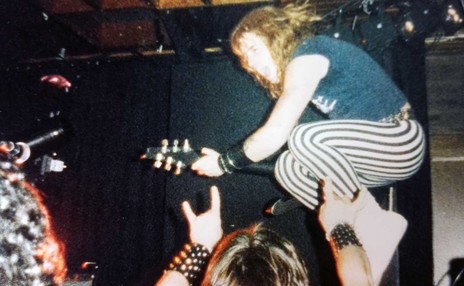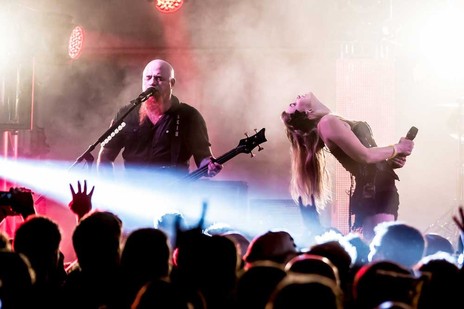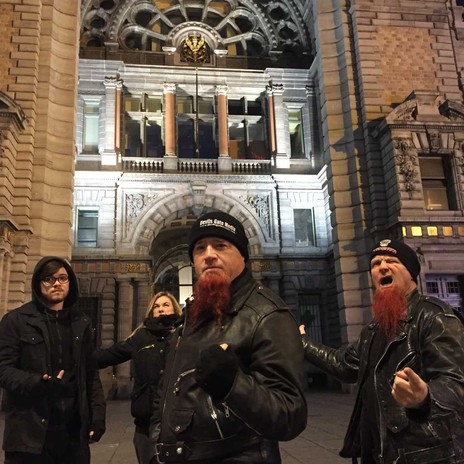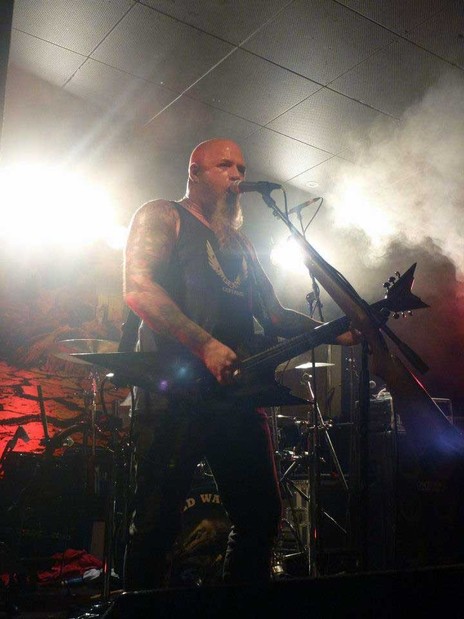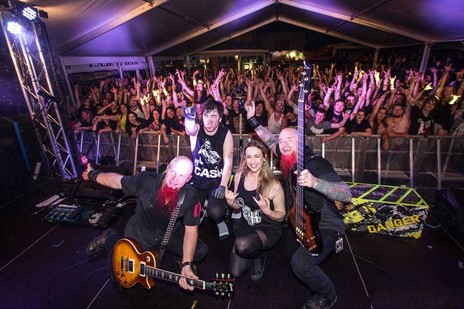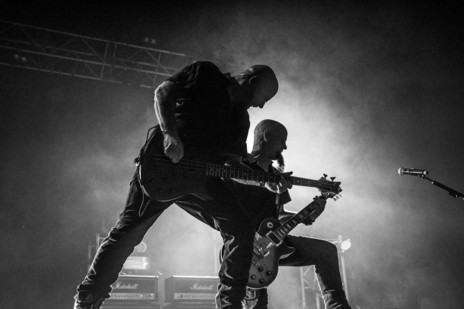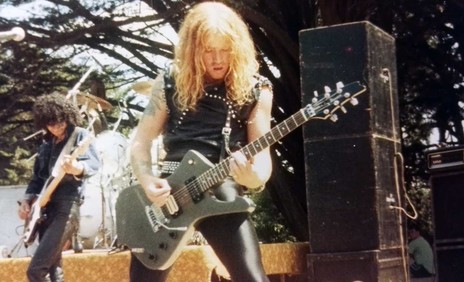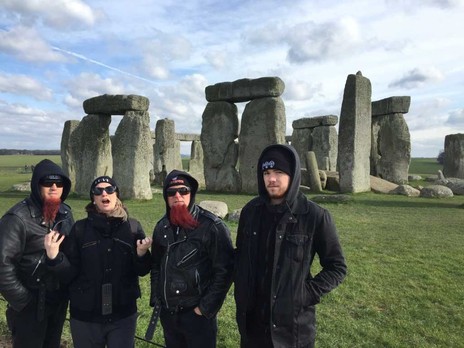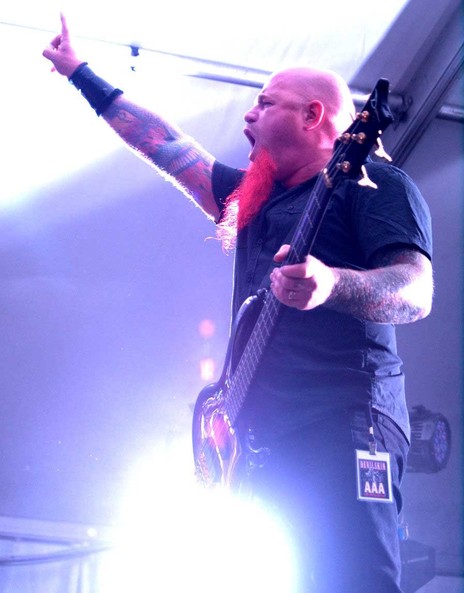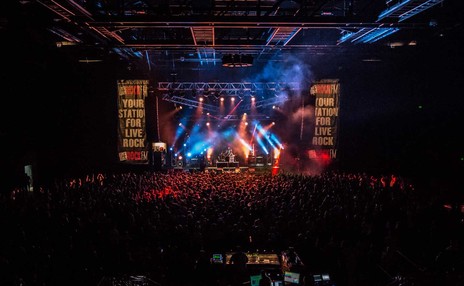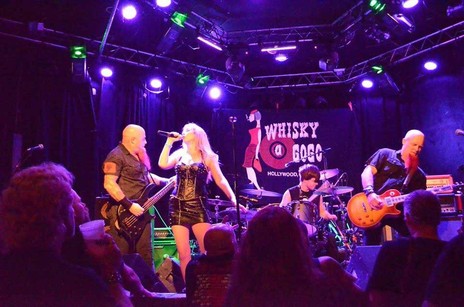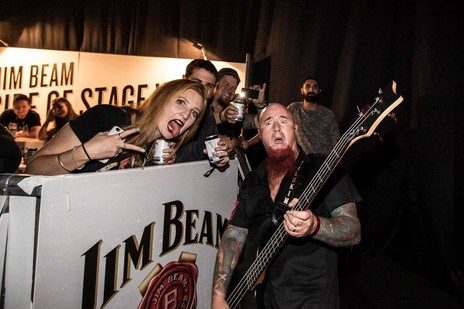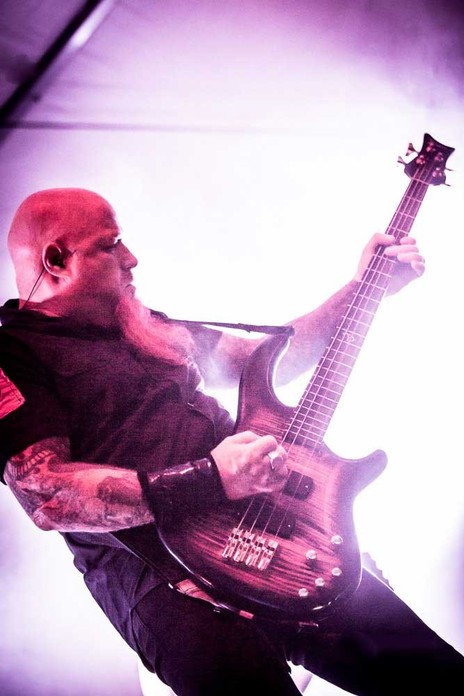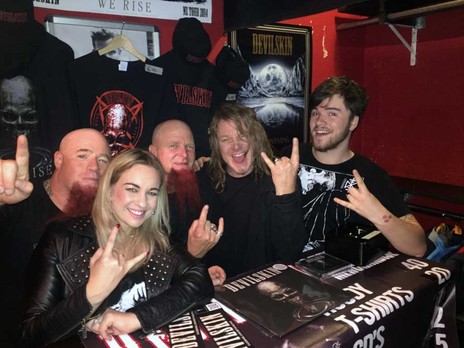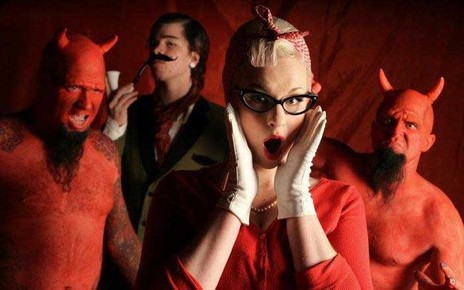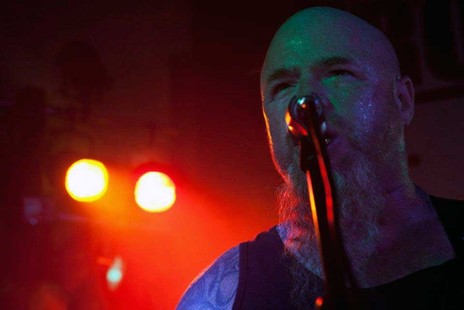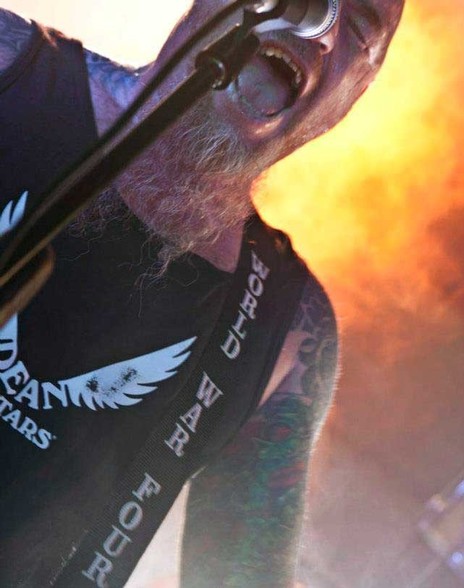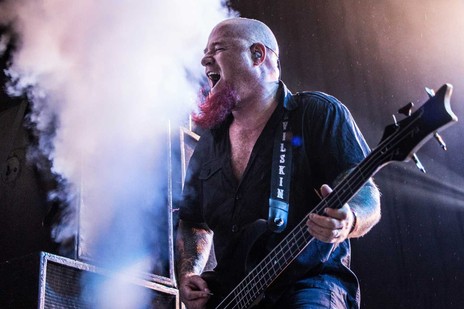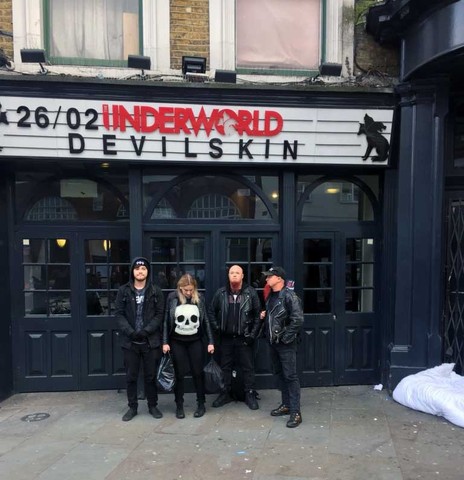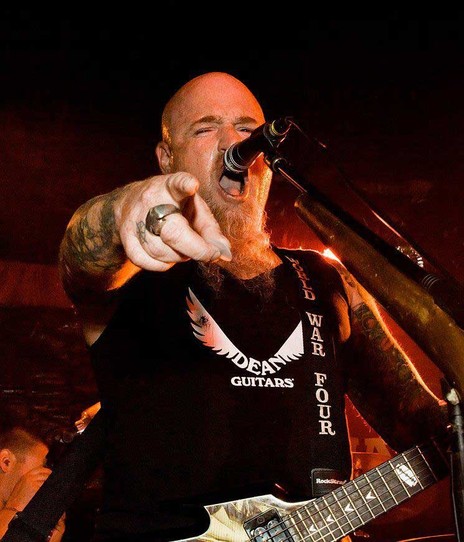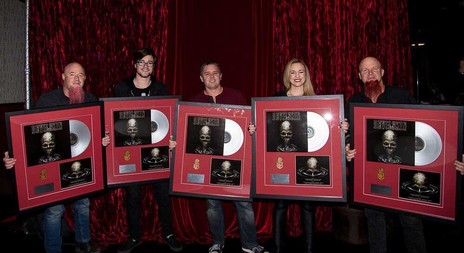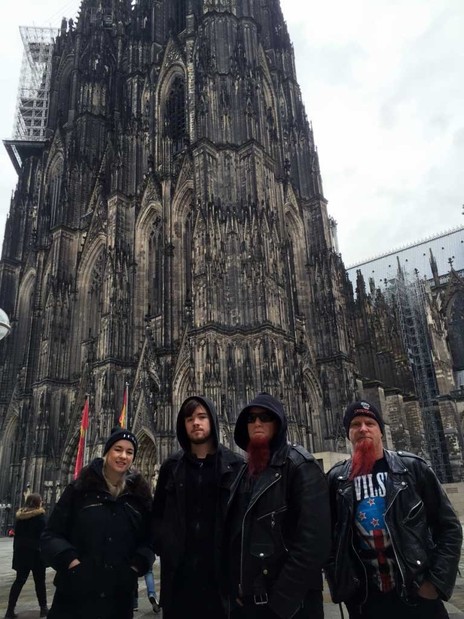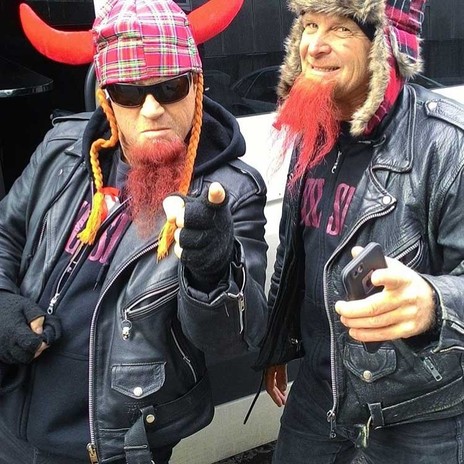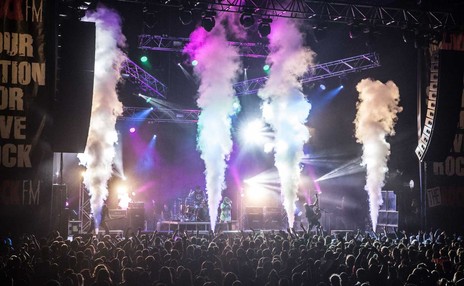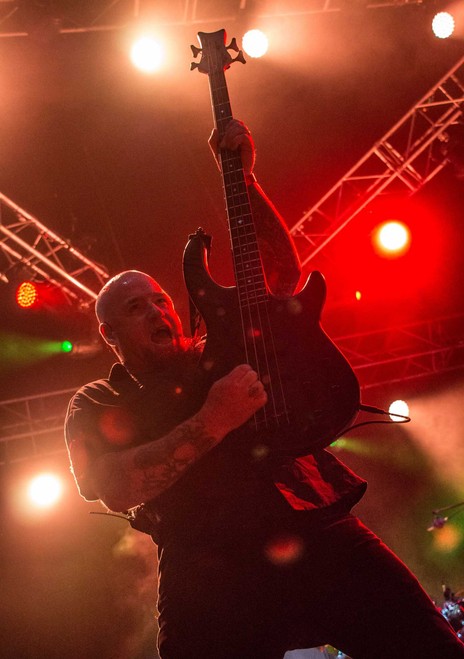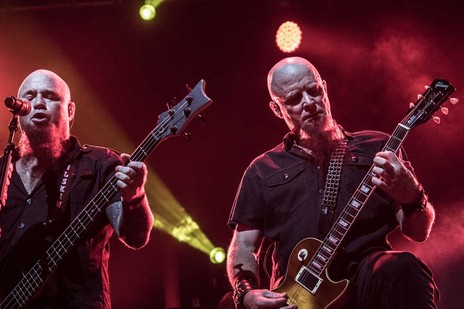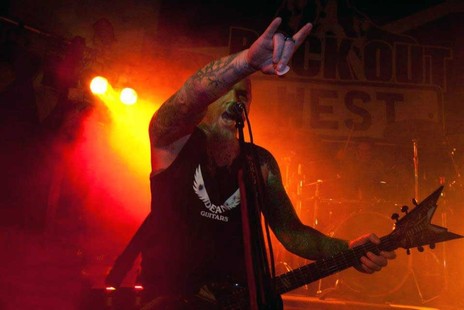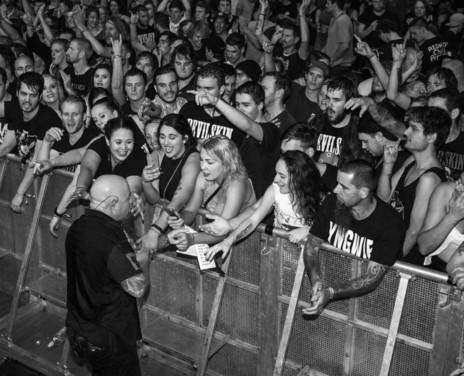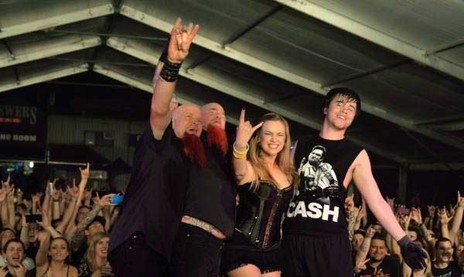In the 1990s Paul Martin’s band Blackjack were the undisputed stars at Hamilton label Hark Records. Hark was an adjunct of The Rock radio station, and both ventures were the creation of music impresario Grant Hislop who built a state-of-the-art recording studio called The Zoo and launched Hark, an attempt to create a mainstream music label based on provincial NZ music. Over a two-year period, Hark and its in-house producer, Zed Brookes, pumped out two dozen albums, singles and EPs, Blackjack being the most successful.
Blackjack
Blackjack’s story begins in 1991 at Tandy’s Recording Studio, a 16-track analogue facility set in a converted barn on Morrinsville Road on Hamilton’s eastern fringes. The band, still fresh off the press and centred on the talents of singer-songwriter Gavin Dempsey, had recorded a song called ‘Outta Here’ which found its way to Paul Martin, who had just returned from a stint playing in covers bands in Australia. He liked what he heard and it just so happened that the band was searching for a second guitarist to add to their line-up. Paul was keen.
The new line-up refined ‘Outta Here’ and then recorded an album called Deal with engineer-producer Zed Brookes. A track from the album, ‘Spinning Wheel’, found its way to Grant Hislop, who dubbed it from cassette to quarter inch tape within 15 minutes of hearing it and put it straight to air on The Rock.
Excited by the potential of Deal, Hislop took the band under his wing and immediately began shaping them for the bigger time.
Excited by the potential of Deal, Hislop took the band under his wing and immediately began shaping them for the bigger time. While they were out on the road building a live audience, Hark prepared the album for release and by thetime it hit the shelves in 1993 it was white hot. It quickly sold around 5,000 units through regional record stores across Waikato, Bay of Plenty, King Country,Taranaki and Manawatu and charted for four weeks, peaking at No.34 in April 1994. A single, ‘Spinning Wheel’, charted in February 1994 at No.38. The second single, the poignant ‘Now You Fly’ penned by Paul reached No.24 on the NZ charts.
The band followed Deal up in 1995 with Kicasso d’Muse, a mammoth rock epic recorded at The Zoo on state of the art equipment with Zed Brookes in the producer’s chair.
“With Deal we discovered we were a pretty decent rock band,” says Paul Martin, “so we approached the second album with a lot more focus and confidence. We had access to a great studio a good producer and the end result was a beautiful collision of wonderful things.”
By the time Kicasso d’Muse was ready to release, the band had lost their charismatic front man Gavin Dempsey, and Hark, financially overextended, struggled to provide the album with the marketing kick it needed to sustain sales. The album quickly disappeared from view. Nevertheless, Kicasso d’Muse was a sensational piece of work that could be categorised as a lost New Zealand rock classic.
Martin was devastated by the downward turn of events. He loved being in Blackjack and was deeply proud of what they had achieved together. He tried in vain to hold things to together and with a new line-up released a third and final album in 1998 called Occult Ritual (a compilation of unreleased material mixed with a couple of new recordings) but Blackjack’s moment in the limelight was essentially over.
“We recorded two albums and made seven videos and today you wouldn’t even know we ever existed,” says Martin.
He makes a good point: for all their popularity in the regions, Blackjack never really scored with big city audiences and for whatever reason, the band seems to have been expunged from the historical record.
The Axe Attack
In 1987, Martin met DJ Johnny Brooks, who was doing a show on Hamilton station Contact FM called The Axe Attack. The pair shared the exact same taste in music, bonded and formed a firm and enduring friendship. When Brooks left some time later to pursue other activities, Martin took over the show and led it through five years of ever-increasing popularity.
In 1992 he approached Hislop and sold him the idea of adding The Axe Attack to The Rock’s programming line-up.
When The Rock FM arrived in Hamilton, Martin saw an opportunity to increase his audience and take his show to another level. In 1992 he approached The Rock and sold them the idea of adding The Axe Attack to their programming line-up. Martin remained with The Rock until early 2015 when the show was cancelled. Not to be deterred Martin found a new home on the iHeart radio platform and The Axe Attack became a 24/7 metal and hard rock channel. He continues to champion local artists, an aspect which has always been the hallmark of the show.The Axe Attack remains one of New Zealand’s longest running radio shows.
Early days
Martin is usually identified with Hamilton but he is actually from all over. His father was a postmaster and the family moved to wherever they were assigned, mostly around the Waikato (Taupiri) and Taranaki (Urenui, Eltham) before finally settling in Wellington, the city where Paul found his feet as a musician.
“I was always mad on music. I remember Mum telling me that when I was five years old I saw Louis Armstrong playing trumpet on TV and was hypnotised by him. Apparently I couldn’t stop talking about him and I begged for a trumpet. I finally got one when I was in Third Form and I learned to it play sitting in with the school orchestra. I got quite good at it but we shifted. Tthe new school had no orchestra and that was the end of that.
“My sisters were playing stuff like Bob Dylan, Uriah Heep, Led Zeppelin and Deep Purple and it was having a profound effect on me. Later I got into Sex Pistols and The Ramones. I wasn’t a punk rocker but I related to the no-nonsense attitude. It was my older brother who introduced me to Black Sabbath, the band that would have the biggest impact on me. He bought their Greatest Hits record, the one with ‘Triumph of Death’ by Pieter Bruegel on the cover, put it on the stereo and I was hooked straight away. It changed my world and I am still a massive Sabbath fan to this day.”
On Black Sabbath's NZ tour in 2016, Paul Martin got the opportunity to meet and interview guitarist Tony Iommi, “Definitely one of the greatest moments of my musical journey!”
Having put the trumpet aside, and turned on by the music his siblings had introducing him to, Martin picked up the guitar and taught himself to play. By the end of high school, he was a reasonably handy player. However, it wasn’t the guitar that got him involved with his first band, it was the bass.
Tyrant
In his final year at Wellington’s Rongotai College, Martin got involved with a group of boys who had just formed a band with an eye to covering all sorts of classic and NWOBHM bands. They needed a bass player and Martin put up his hand, neglecting to tell them he knew nothing about the bass. He rushed out and purchased an instrument along with a copy of the latest Iron Maiden album Killers and set to work learning how to play both the music and the instrument.
“I sat down to learn ‘Killers’ and absolutely crapped my pants when I heard the complexity of the bass lines but I worked really hard and learned the parts and basically tricked the guys into thinking that I knew exactly what I was doing. Of course, I had no idea. We ended up covering Judas Priest, Scorpions and Black Sabbath and on top of that wrote a whole bunch of originals. This is where it all started for me.
“Your first band is like a love affair, you’ve got this cool vibe going on with the guys and you’re dreaming about the future. We had this practice room in the middle of Willis St in Wellington, which was pretty much our second home. We drank heaps of booze, and mooched around central Wellington with our long hair and studded wristbands and thought we were pretty cool. They were fun times and I really loved that band but when I listen back now we were pretty rough. We recorded an EP called Breaking Out and released it on vinyl. Funnily enough it has ended up being something of a collector’s item in places like Turkey and Greece where copies sell for four hundred plus Euros.”
In March 1981, Tyrant recorded a 4-track demo tape at Sausage Studios in Kelburn. Later in 1981, they went through a period of line-up re-shuffles, along the way demoing two Martin-penned tracks, ‘Don’t Get Me Wrong’ and ‘Pieces Of Hate’. The band is included on Godzone Metal, a 1984 New Zealand metal compilation album.
Their 1984 EP Breaking Out was recorded at Marmalade Studios in Wellington with former Dudes guitarist Ian Morris as the engineer. It features a cover of The Easybeats’ ‘Sorry’ and two originals, ‘Nowhere To Run’ (Martin, Wood) and ‘Breaking Out’ (Martin). The EP also famously includes a recorded backwards message which was added to reinforce the band’s reputation as pranksters.
Tyrant played its last gig in June 1984 at their practice rooms in Miramar to a few hundred loyal fans and friends. Following that, Paul joined Knightshade and Woody left New Zealand for London.
Knightshade
During the last days of Tyrant, Martin came across Te Puke metal outfit Knightshade who were playing three nights at a Wellington tavern called The Terminus. Intrigued by the art on the advertising posters, he went along to check them out. “I was just blown away. They were this amazing ‘kick-ass’ band with a big light show and Flying V guitars.”
He introduced himself to the guys and hung out with them the next few times they were in Wellington. “We got on really well. A while later when guitarist Laurie Goossens left they got in touch and offered me the job. I packed up straight away and headed up to Te Puke and later followed them to Hamilton, where I have been ever since.”
Knightshade have faded somewhat from national memory but in their heyday they were one of the country’s leading hard rock acts.
Knightshade have faded somewhat from national memory but in their heyday they were one of the country’s leading hard rock acts. With a handy 800-member fan club at their disposal, drew big crowds wherever they played. The band broke up in the late 1990s, reforming in 2011.
Martin’s tenure with the band lasted about two years. “There was some interest from a big label and the band wanted to develop a more commercial sound and I wanted us to get heavier, which created some tension.” There was a band meeting and Martin was given the chop. While it hurt, he didn’t let it get in the way of his friendship with the various band members and to this day Martin includes his former bandmates Wayne Elliott and Rik Bernards among his biggest musical influences and closest friends.
Paul Martin features on the 1986 Knightshade EP Out for the Count, which spent five weeks on the NZ Singles chart, peaking at No. 26 in November 1986.
Fury
Martin describes his next band, hard rock/metal outfit Fury, as “a whole lot of fun”. While the band’s focus was on originals they covered Iron Maiden, Scorpions and Black Sabbath. Fury won the 1987 round of the much-coveted Hillcrest Tavern Battle of the Bands and was a popular touring act across the provinces. Guitarist Reiner Beet was killed in a car accident in 1992 and is commemorated in Paul Martin’s song ‘Now You Fly’, which was a hit for Blackjack in 1993.
Solo
While best known for his work as a metal musician, Martin is a dab hand as a pop songwriter. While he was between bands in late 1989, Martin decided to set to work and explore other aspects of the music floating around in his head. The result was the solo album Nightfall, a “low budget effort” that was recorded at Radio Contact's studio at Waikato University.
Nightfall is an acoustic album featuring three guitar instrumentals and three tracks with Martyn Clist from Fury on vocals. “I played classical and 12-string acoustic guitar as well as bass and electric guitar. I released it independently in 1990 and sold around 800 copies. I was having access problems with my daughter and I wanted to pour my heart out to her with music. It was a way of having some control at a time when I felt powerless.”
“Songwriting has always been really important to me and like any other writer I want my songs heard and listened to. I want to empower, evoke and motivate people and I want them to get what I’m feeling and I want to leave behind some kind of legacy.”
World War Four
It was during his tenure in Blackjack that Martin began envisaging a band that would serve as an outlet for his heavier aspirations. “I wanted a dirty little three man army that played aggressive music with a big rat-tat sound that fired like a Kalashnikov. We couldn’t find the right singer and I sort of got thrown into that role.”
Over the years Martin has crafted a line-up that makes exactly the kind of sound he initially envisioned. The band has been active now for 15 years. World War Four released an EP in 2007 called This Hostile Species, followed in 2014 by another EP, Absolution. Paul Martin still writes, plays and records with World War Four.
The Gemini Party
Starting in 1988 as a get together for a bunch of musician mates to celebrate their birthdays, Martin was a founding member of the Waikato's legendary party of the year, the infamous Gemini Party. Held each year around Queens birthday weekend, it attracts 4-500 people. “It’s a celebration of great people, friendship and great music that has endured and a great excuse for people to make an effort to catch up annually," said Martin. “Besides it’s the perfect opportunity for me to play at my own birthday party!” 2016 saw the 28th annual Gemini party, featuring World War Four, 8Forty8, After Forever (Black Sabbath tribute), Andy Starr and Ellie May Marshall.
Devilskin
Devilskin came about through The Axe Attack. “I get sent all these demos from local bands and one day [in 2008] this CD turned up in a shitty little envelope with scribble all over it. It was a rough-looking demo from a Rotorua band called Slipping Tongue. I put it on and the guitar was out of tune and it sounded like it was recorded in the toilet and unimpressed I was just about to throw it out when the vocal came on and suddenly out of nowhere there was this powerful voice that sent shivers down my spine. The singers name was Jennie Skulander and the song was called 'Hypocrite'. I was convinced and after that I became their champion and gave them all the support I could.”
Martin bumped into Skulander in downtown Hamilton in 2010. By this time Slipping Tongue had broken up and Skulander had moved to Hamilton. They started talking about music and discovered that they had a lot in common. Martin asked Skulander to consider forming a band with him but she needed some convincing. After the effort that had gone into Slipping Tongue and the less than satisfactory conditions of their breakup she was enjoying her freedom. Martin persisted and eventually she agreed to a trial. With Martin back on bass, he roped in the Nail from Chuganaut (one of Hamilton’s leading hard rock bands) and asked a local band drummer he knew to fill in.
Very early in the piece the drummer had to miss a tour to have an operation and Martin "press-ganged” his son Nic into taking over the drum stool as a temporary measure. It worked so well that they kept Nic on full-time. “We replaced a 50-year-old with a 15-year-old and Nic’s been with us since. Having my son in the band is the coolest thing ever. Sometimes I hear this amazing drum fill and look over my shoulder and see my son and feel so proud that I have to pinch myself to regain focus. He is a humble and down to earth guy who works really hard. He's a powerful and dynamic drummer, a great kid and a great mate. We have a lot of laughs on the road and I really treasure creating music and performing with him."
In May 2014 Devilskin released the single, ‘Start a Revolution’, which peaked at No.28 on the NZ Singles Chart.
The band also released its debut album We Rise in 2014. Recorded at York Street Recording Studios in Auckland and Rockfield Studios, Monmouth, Wales, and mixed at Modern World Studios in the UK, it debuted at No.1 on the national Album Chart in July 2014 and became the nation’s biggest selling independent release of that year. By March 2015, having sold in excess of 15,000 copies, We Rise went platinum, the first NZ rock/ metal album to do so since Shihad’s Killjoy 18 years earlier. We Rise stayed in the national Album Chart for 95 weeks (and counting) from 2014 to 2016.
The band accompanied We Rise with the CD/ DVD Live At The Powerstation, which debuted at No.12 on the NZ Album Chart in December 2014 and stayed on the chart for eight weeks.
After the 20 date sold-out album tour in July-August and an eight date Summer Surrender tour in late 2014, Devilskin went offshore to play a series of promotional gigs, seeking the attention of international record companies and festival organisers. They played London and went on to Los Angeles where Paul was able to fulfil one of his ambitions, to play the iconic Whiskey A Go Go.
“That was a surreal experience and not only the climax of the trip but one of the highlights of my life. We sat in the booth where Janis Joplin sat on the last night of her life and used the same dressing room as Jimi Hendrix. We supported Tracii Guns (LA Guns) and one of my favourite players Rudi Sarzo (Ozzy Osbourne) was in his band. It was all really trippy and we were all deeply affected by it all.”
Since returning home Devilskin have released a new single, ‘Mountains’, which was recorded while they were in England, and have undertaken another large-scale tour called Mountains and the Moon. They have shared the stage with Slash, Motley Crue, Alice Cooper, Rob Zombie, Megadeth, Korn and Five Finger Death Punch and will open for Disturbed at Vector Arena Auckland in Nov 2016.
The band were nominated for four awards in the Vodafone NZMusic Awards 2016 and returned to the UK and Europe for a six-week tour in March 2016. While they were there they recorded album number 3 at Modern World Studios in Gloucestershire.
The band have since signed a record deal with a German label and have signed to a large US based booking agency. At the time of writing it’s still early days for Devilskin, but it seems all Paul Martin’s drive and determination is paying off once again.
